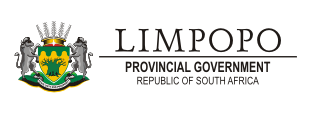
University of Limpopo hosts combined congress
The University of Limpopo hosted the annual Combined Congress on the 20th of January 2025 in Polokwane, The Ranch Hotel. The annual gathering is about three scientific societies which includes, soil science represented by Society of South Africa (SSSSA) Horticultural Sciences represented by Southern African Society for Horticultural Sciences (SASHS) and Crop production represented by the South African Society of Crop production.
The congress was attended by MEC for Agriculture and Rural Development, Nakedi Kekana, representatives from the Water Research Commission, researchers, and academics. The congress aims to optimize resources and promote collaboration among members by bringing together expertise in crop production, horticultural sciences, soil science and water research.
Limpopo province is known for rich agricultural activities and the hosting fitted with the completion of collaboration with relevant sectors to ensure sustainable food security.
Addressing delegates under the theme “Science for Commercial and Rural Development” Kekana said theme reflects not only the importance of research and innovation but also the critical role of science in bridging the gap between two distinctly different economic realities.
“The challenges of climate change and water scarcity underscore the importance of collaborative research and the integration of research findings into policy. Collaboration is essential for maximizing the impact of research efforts and optimizing the use of resources.
It is encouraging to see institutions and organizations engaging in partnerships to advance agricultural research. However, there is a need to strengthen these collaborations further, both nationally and internationally. Partnerships with science councils, universities, and government research units can enhance the efficiency and effectiveness of research programs, ensuring that they address the most pressing challenges facing the agricultural sector,” said Kekana.
Kekana further thanked the congress for choosing Limpopo province and highlighted that as one of policymakers, they rely on the scientific community to provide evidence-based solutions that inform decision-making and guide the development of policies that address the needs of the agricultural sector.
According to the United Nations, the world’s population has grown from 6.1 billion in 2000 to 8.1 billion in 2024, representing a staggering increase of approximately 2 billion people in just over two decades. This population growth is even more pronounced in Africa, where the population has increased by 45% over the same period, from 819 million to 1.49 billion. Such demographic trends underline the urgency of enhancing agricultural productivity to meet the rising demand for food and other agricultural products. This necessitates robust research programs aimed at addressing the challenges that hinder agricultural productivity and sustainability.
